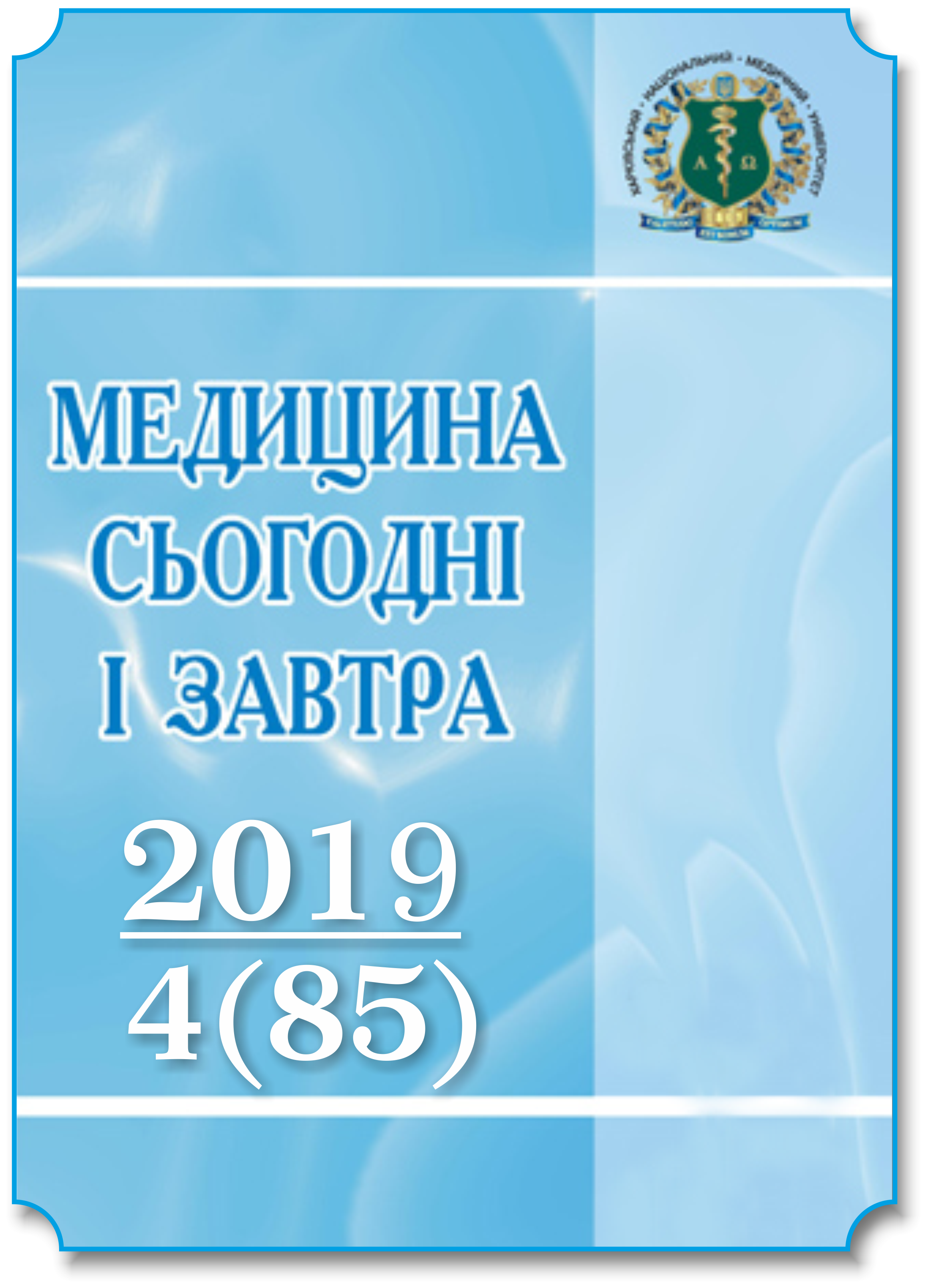Abstract
Cancer has a negative impact on the mental health not only patients but also their relatives. Based on ethical and deontological principles were examined 288 family members of cancer patient, 174 husbands and 114 wives. In the study used such diagnostic methods as Perceived Guilt Index and the Family Adaptation and Cohesion Scale (FACES-3), a clinical-psychological interview. It is determined, that cancer progression, the level of family adaptation and gender influenced on the intensity of guilt. The severity of situational guilt was higher than the severity of personal guilt in families with a cancer patient. For cancer guilt in the patient and its family members were a frequent manifestation of mental distress, but the progression of the disease was a significant factor in its actualization. Females were at increased risk for the effect of guilt on psychological status. In families with impaired family adaptation, feelings of guilt were a component of the negative experiences that accompanied marital interaction, and were greatly exacerbated in the crisis situation such as oncopathology. It is shown, that medical-psychological help for the patient’s family is an important and necessary component of interventions in oncology practice.
References
Holland J.C., Breitbart W.S., Jacobsen P.B., Loscalzo M.J., McCorkle R., Butow P.N. (Ed.). (2015). Psycho-Oncology. Oxford University press, 772 p.
Jeong A., Shin D.W., Kim S.Y., Yang H.K., Shin J.Y., Park K. et al. (2016). The effects on caregivers of cancer patients’ needs and family hardiness. Psycho-Oncology, vol. 25 (1), pp. 84–90, PMID 26797937, DOI 10.1002/pon.3878.
Lai C., Borrelli B., Ciurluini P., Aceto P. (2017). Sharing information about cancer with one’s family is associated with improved quality of life. Psycho-Oncology, vol. 26, issue 10, pp. 1569–1575, DOI https://doi.org/10.1002/pon.4334.
Jia M., Li J., Chen C., Cao F. (2015). Post-traumatic stress disorder symptoms in family caregivers of adult patients with acute leukemia from a dyadic perspective. Psycho-Oncology, vol. 24, issue 12, pp. 1754–1760, DOI https://doi.org/10.1002/pon.3851.
Drabe N., Klaghofer R., Weidt S., Zwahlen D., Büchi S., Jenewein J. (2015). Mutual associations between patients’ and partners’ depression and quality of life with respect to relationship quality, physical complaints, and sense of coherence in couples coping with cancer. Psycho-Oncology, vol. 24, issue 4, pp. 442–450, DOI https://doi.org/10.1002/pon.3662.
Lee K.C., Yiin J.J., Lin P.C., Lu S.H. (2015). Sleep disturbances and related factors among family caregivers of patients with advanced cancer. Psycho-Oncology, vol. 24, issue 12, pp. 1632–1638, DOI https://doi.org/10.1002/pon.3816.
Nipp R.D., El-Jawahri A., Fishbein J.N., Gallagher E.R., Stagl J.M., Park E.R. et al. (2016). Factors associated with depression and anxiety symptoms in family caregivers of patients with incurable cancer. Annual of Oncology, vol. 27 (8), pp. 1607–1612, DOI 10.1093/annonc/mdw205.
Markova M.V., Piontkovska O.V., Mukharovska I.R. (Compilers). (2013). Alhorytm povidomlennia diahnozu ta «nespryiatlyvykh» novyn u klinitsi dytiachoi onkolohii: metodychni rekomendatsii [Algorithm for reporting diagnosis and «adverse» news in the pediatric oncology clinic: guidelines]. Kharkiv, 26 p. [in Ukrainian].
Leroy T., Fournier E., Penel N., Christophe V. (2016). Crossed views of burden and emotional distress of cancer patients and family caregivers during palliative care. Psycho-Oncology, vol. 25 (11), pp. 1278–1285, PMID 26632424, DOI 10.1002/pon.4056.
Mukharovska I.R. (2016). Osoblyvosti psykholohichnoho stanu chleniv simii onkolohichnoho khvoroho na riznykh etapakh likuvalnoho protsesu [Features of the psychological state of family members of a cancer patient at different stages of the treatment process]. Science Rise. Medical Science, № 12 (8), pp. 21–26, http://nbuv.gov.ua/UJRN/texcsrm_2016_12_6 [in Ukrainian].

